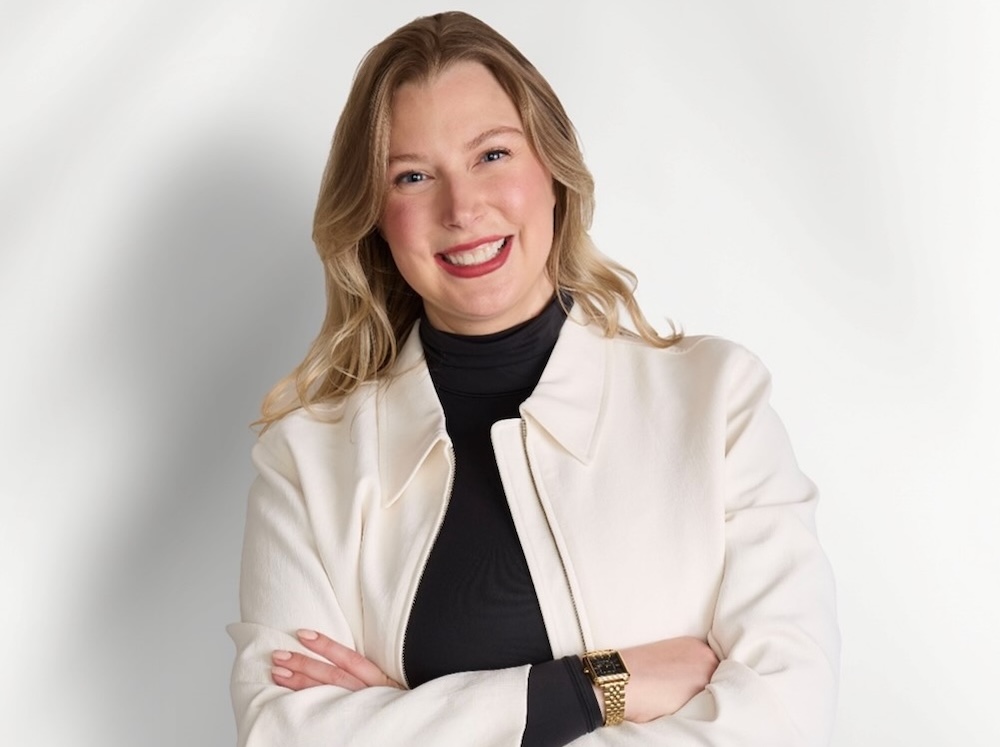Markets & Industry
BioAge shares plummet after trial closes

Shares of agetech company BioAge have plummeted since the company announced the discontinuation of a Phase 2 trial for its weight-loss drug azelaprag due to safety concerns.
The abrupt halt comes just a little over two months after the company raised US$198m in an initial public offering in late September.
Hagens Berman has opened an investigation into whether BioAge’s IPO documents may have contained misstatements or omissions and urges investors who suffered substantial losses to submit your losses now.
On September 25, 2024, BioAge went public on NASDAQ (BIOA), pricing 11 million shares at US$18 per share.
Preclinical data had suggested that azelaprag, when combined with other therapies, could significantly aid weight loss while preserving muscle mass, according to the IPO documents. The company said it had initiated a Phase 2 trial of azelaprag in combination with Eli Lilly’s tirzepatide, also known as Mounjaro and Zepbound, with initial results expected in the third quarter of 2025.
However, on December 6, BioAge announced the discontinuation of the trial after observing elevated liver enzymes in several patients receiving azelaprag, leading the company to halt dosing and enrollment in the trial.
BioAge informed the FDA of its decision and stated it would provide an updated plan for the drug in the first quarter of 2025. The news sent BioAge shares tumbling nearly 80 per cent on December 9.
The disclosure and stock drop have driven shareholder rights firm Hagens Berman to open an investigation.
“We are investigating whether BioAge adequately disclosed the potential safety risks associated with azelaprag in its IPO filings,” said Reed Kathrein, the Hagens Berman partner leading the investigation.
“Investors deserve to be fully informed about the risks they are taking when investing in a biotech company’s IPO.”
News
Round up: First AI-powered personalised app for brain health and longevity, and more

Agetech World explores the latest business developments in the world of ageing and longevity.
US$4.5m NIH Funding for senior care technology
Immersive technology company Rendever has secured nearly US$4.5m in grant funding from the National Institutes of Health (NIH) to improve the ageing process through technology-enabled social networks.
The funding includes US$3.8m for the Thrive At Home Program and an additional grant to build a caregiver support network in virtual reality (VR).
The company says the funds will pave the way for Rendever to bring its technology to the large majority of individuals and caregivers who are ageing in place and lacking in structural social support.
This significant investment continues Rendever’s work alongside the University of California in Santa Barbara, and also involves new partnerships with the research organisation RAND and with Right at Home to bring this technology into the home care market.
Together, they will conduct studies to evaluate the effectiveness of VR technology in building relationships across living environments, thereby reducing social isolation, improving mental health, and enhancing overall well-being throughout the ageing lifespan.
At the same time, Rendever will be studying the impact of caregiving tools, including its recent Dementia & Empathy training programme.
With the definition and experience of “home” shifting continually in a way that can disrupt critical social engagement, this initiative has the potential to revolutionise the way seniors experience care and community.
“Our Phase II trial has shown the power of VR to effectively build and enhance family relationships across distances – even across country lines.
“The future of aging depends on technology that effectively reshapes how we experience these core parts of the human experience as we get older,” said Kyle Rand, Rendever’s CEO.
“We know there’s nothing more holistically impactful than our social health.
“Over the next three years, we’ll work across the industry to build the next generation of community infrastructure that delivers real happiness and forges new relationships, all while driving meaningful health outcomes.”
Previous work in this NIH line of research has shown that family members experience a significant reduction in stress and depression after a four-week social intervention in Rendever.
Recent results show that the positive effects of social VR interventions are increased for families navigating dementia and Alzheimer’s Disease.
First AI-powered personalised mobile app for brain health and longevity
Digital health company Tolion Health AI has launched its mobile app, Tolion Brain Coach, powered by Tolion AI.
Tolion’s launch makes its AI-powered Tolion Brain Coach free to all, aiming to expand access to proactive brain-health tools based on current neuroscience.
The app provides daily evidence-based tips for cognitive health and lowering dementia risk.
The launch of Tolion Brain Coach introduces Tolion’s advanced science and technology to a broad audience focused on brain health.
“The launch of Tolion Brain Coach introduces Tolion’s advanced science and technology to a broad audience focused on brain health,” said Martin Tolar, founder and director of Tolion Health AI.
“Translating recent research into practical steps helps users prevent cognitive decline, stay mentally sharp, and lead healthier lives. With Tolion, prevention is both possible and personal.”
Tolion Brain Coach integrates AI-based analytics, wearable device data from industry leaders such as Garmin, and a medical knowledge engine to deliver tailored recommendations for cognitive improvement.
The app enables users to take proactive steps for better brain and mental performance through simple, daily actions and combines AI-driven behavioral analytics and integration with wearables, along with a medical knowledge engine to deliver personalised guidance.
“Personalised lifestyle recommendations have the potential to significantly enhance health, well-being, and longevity,” stated Ing. Jaroslav Lískovec, CEO of Tolion Health.
“By focusing on preventive measures, healthcare systems can achieve substantial cost savings and improve patient outcomes.”
Avant Technologies and Austrianova to advance anti-ageing therapies
Biotech company Avant Technologies has announced that its 50/50 joint venture – Klothonova – with Austrianova, has entered into an exclusive agreement with Klothea Bio.
The license agreement grants Klothonova exclusive global rights to develop, manufacture, and commercialise Klothea Bio’s proprietary Klotho producing cells, encapsulated using Austrianova’s proprietary Cell-in-a-Box technology, for the treatment of diseases and conditions in humans and animals.
Under the terms of the agreement, Klothea Bio – a Delaware-based biotechnology company specializing in Klotho protein research and therapeutic applications – provides Klothonova access to a proprietary Klotho generating cell line.
Klotho, often referred to as the “longevity protein,” has demonstrated significant potential in combating key drivers of ageing such as cellular senescence and chronic inflammation.
The collaboration aims to accelerate the development of regenerative and anti-ageing therapies that target the cellular mechanisms underlying longevity and chronic disease, positioning Klotho-based treatments at the forefront of next-generation anti-ageing innovations.
Under the agreement, Klothonova will leverage this technology in conjunction with Austrianova’s proprietary Cell-in-a-Box encapsulation platform to encapsulate Klothea’s genetically modified cell line that overexpresses Klotho proteins.
This aims to create encapsulated, implantable therapies capable of sustained, localized delivery, enhancing safety and efficacy for applications in regenerative medicine and disease prevention.
Diligent Robotics selected for AgeTech Collaborative from AARP Accelerator Program
Diligent Robotics has been accepted into the AgeTech Collaborative from AARP accelerator, an eight-week programme designed to elevate promising early-stage AgeTech startups.
To date, Diligent Robotics has powered over 1.25 million deliveries of medications, lab samples, and medical supplies across leading hospitals and health systems including Northwestern Medicine, Providence Saint John’s Health Center, and Rochester General Hospital.
Its flagship mobile manipulation platform Moxi navigates complex, crowded, human environments to free staff for more high-value clinical tasks instead of locating supplies.
The company’s entry into senior care comes as the sector faces rising labour shortages, with 18 million expected to exit this field by 2040 just as additional 2.5 million jobs will be created.
The AgeTech Collaborative from AARP accelerates innovation in technologies that improve how we age.
Through its participation, Diligent Robotics will receive direct go-to-market support and will focus on product discovery to identify where assistive robots like Moxi can have the most impact for older adults.
Through this expansion, Diligent Robotics says it will also be able to continue pushing forward physical AI progress.
AI-Powered resident care launches
Senior care company MorseLife Health System is transforming how its residents connect with services, provide feedback, and experience daily life through its voice-first AI companion, Malka AI.
Since Malka AI was first implemented in October 2025, it has eliminated about 80 calls to the concierge desk, freeing staff to focus on personalised service while improving response times.
Keith Myers, president and CEO of MorseLife, said: “The integration of Malka AI is a testament to MorseLife’s continued commitment to innovating for and enhancing the lives of our residents.
“By turning real-time insights into action, it allows our teams to respond with speed and precision while deepening the connection between residents and staff. We’re proud to be setting a new standard for excellence in senior living.”
News
$60bn Canadian financiers launch longevity institute

Canadian life insurer and asset manager Manulife has boosted its presence in the healthy ageing sector with the launch of a CA$350m Longevity Institute.
Valued at US$60bn, Manulife has been active in the longevity space for some time and says the new institute will see it fund ‘innovative research, and key industry collaborations’.
Manulife’s chief sustainability officer Ariel Kangasniemi told Agetech World: “Our ambitions go beyond helping our customers to simply add more years to their lives; we’re investing in putting more life in the years.
“Because of this, we’re approaching longevity through different avenues; each one mindful of broader forces, seen and unseen, that influence better outcomes for health and wealth of people.
“The Longevity Institute is a time-bound commitment designed to drive action and insights to meet the trends impacting our industry, customers, and communities, and the challenges and opportunities presented by the growing gap between lifespans and health-spans.”
Manulife serves over 36 million customers, primarily in the North American and Asian markets. It is currently partnered with three key players in the longevity space.
Namely;
-The Canadian National Institute of Ageing
-Milken Institute, of California
-Massachusetts Institute of Technology (MIT) AgeLab
Ms Kangasniemi continued: “The gap between how long people live (lifespan) and their quality of life (healthspan) is widening.
“Backed by our CA$350m commitment, the Longevity Institute will reflect both the legacy of our leading partnerships and build new momentum through 2030.
“It will help to unify and scale efforts across our global footprint. The Longevity Institute’s initiatives at launch include ongoing work with the MIT AgeLab, National Institute on Ageing, and Milken Institute.
Key collaborations
In the US Manulife’s creation will be known as the John Hancock Longevity Institute – named after the 19thC entrepreneur-philanthropist – and over the next four years it will deliver an annual ‘first-of-its-kind’ Longevity Preparedness Index.
This aims to measure the readiness of US adults for longer living by examining eight key domains: social connection, finance, daily activities, care, home, community, health, and life transitions.
Manulife is supporting Canada’s National Institute on Ageing’s annual ‘Ageing in Canada Survey in 2026’, in partnership with Toronto Metropolitan University.
This will explore the lived experiences of Canadians aged 50-plus to inform policies that promote healthy ageing.
In recent years Manulife has supported the California-based Milken Institute to advance thought leadership and research on the key issues shaping longevity and the future of health.
Ms Kangasniemi added: “Having started with our own research from around the world, we know it’s more likely than not that people think ‘Longevity’ equals lifespan.
‘Putting more life into our years’
“Our ambitions go beyond helping our customers to simply adding more years to their lives; we’re investing in putting more life in the years.
“Because of this, we approach longevity through different avenues – each one mindful of broader forces, seen and unseen, that influence better outcomes for health and wealth of people.
“The Longevity Institute is a time-bound commitment designed to drive action and insights to meet the trends impacting our industry, customers, and communities, and the challenges and opportunities presented by the growing gap between lifespans and healthspans.
“It reflects our commitment to empowering health, wealth, and longevity, which is a core focus of our refreshed enterprise strategy.”
Phil Witherington, president and CEO of Manulife, added: “Empowering health, wealth, and longevity is central to Manulife’s bold new ambition.
“It aligns with our values and our commitment to the communities we operate in, and we are uniquely placed to help individuals and families navigate the growing gap between lifespan and healthspan.
“For generations now, Manulife has supported customers at every stage of life, and we see a powerful opportunity to scale our expertise and help even more people live longer, healthier, better lives.
“Through the Longevity Institute, we will partner with organisations that share our purpose, unlock new insights, drive innovation, and create a future where everyone can thrive – at any age.”
Technology
Forus gains AI backing with 21 per cent stake

Eye-screening firm Forus Health has received a 21 per cent investment to scale its AI diagnostics across India and abroad.
Forus Health develops ophthalmic diagnostics — tools that detect eye disease — and “oculomics”, which uses eye images to flag wider risks such as diabetes or hypertension. Its devices have screened over 22 million people in more than 75 countries, and its AI-integrated platform has delivered comprehensive eye assessments to over five million patients.
The deal is a secondary transaction intended to support the scale-up of Forus Health’s AI eye-screening platforms and international deployment.
Inviga Healthcare Fund has acquired the 21 per cent stake, its second major investment after Mynvax in 2024, signalling support for India-built AI diagnostics in global markets.
Dr B. S. Ajaikumar, founder of Inviga Healthcare Fund and chair of HCG, said: “Forus Health embodies the Inviga ethos: clinically strong, technologically deep, socially impactful, growth oriented, profitable. This investment is a testament to our confidence in India’s ability to produce world-class healthcare innovations for domestic and international markets. We are delighted to partner with visionary founders like Chandrasekhar (KC) who combine deep insight with execution to make preventive, equitable healthcare a reality.”
K. Chandrasekhar, founder and chief executive of Forus Health, said: “We are thrilled to welcome Inviga as we enter the next phase of our growth. Their expertise in healthcare, operational experience, and insights from a clinician’s perspective are incredibly valuable. Together, we aim to enhance our AI and platform capabilities, utilise our proven ability to innovate in medical devices, and expand our reach both in India and globally. Our mission remains focused on eradicating preventable blindness.”
Rakshith Rangarajan, fund manager at Inviga Healthcare Fund, said: “Our collaboration with Forus is a strategic step intended to facilitate the expansion of a reputed med-tech franchise that is serving a significant market demand through a sustainable and economically sound business model. It reflects our commitment to advancing accessible solutions that address large, unsolved health challenges. The Make in India, Make for India and Make for the World ethos of Forus resonates deeply with our Fund. We’re confident this partnership will drive sustained growth and long-term value creation.”
The burden underscores the need for scalable tools: an estimated 270 million people in India live with visual impairment, much of it preventable; globally, 2.2bn people live with vision impairment or blindness, with over 1bn cases considered preventable or treatable. Forus Health’s 3nethra screening devices and wearable 3nethra specto — a smartphone-operated digital refractor for remote and tele-optometry — target earlier detection and easier access to care.

 Technology4 weeks ago
Technology4 weeks agoScientists closer to halting ageing at its biological roots

 News4 weeks ago
News4 weeks agoUS$100m UK tech entrepreneurs shift focus from real estate to longevity

 Research3 weeks ago
Research3 weeks agoWeight loss jabs my only temporarily reduce ‘food noise,’ study finds

 News4 weeks ago
News4 weeks agoSupplement could restore memories lost by Alzheimer’s, study finds

 News6 days ago
News6 days agoTreatment can slow or reverse age-related memory decline – study

 Wellness2 weeks ago
Wellness2 weeks agoEating cheese linked to lower dementia risk

 News4 weeks ago
News4 weeks agoGladys raises £1.5m for AI home care

 Technology4 weeks ago
Technology4 weeks agoForus gains AI backing with 21 per cent stake


































